research
member
seminar
archive
infomation
links
access
|
Overview
|
In the Computational Chemistry Group,
we perform theoretical and computational chemistry studies of quantum state control and expression mechanism of solid-state properties.
|
|
In the research of the quantum state control, we work on the theoretical
study which the laser pulse irradiation of the molecule has control over
the structure and the behavior of the molecule. Most conventional chemical
reactions occur in a stable electronic ground state; however, there is
unlimited potential of chemical reactions in the Quantum Control by laser
pulse with the molecular-excited state. So far, we have achieved the complete
transition to a negative temperature that the electronic ground state of
diatomic molecule change to the electronic excited state in a particular
high-vibrational level.
|
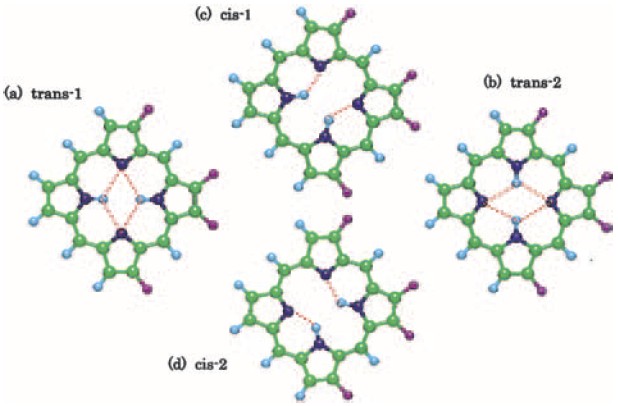
|
|
The study regarding free control of molecule state including structure,
function, and motion is our current interest; we focus on the hydrogen
bond that plays a key role in biopolymer structures and functional expressions
and do theoretical simulations to control the proton motion involved in
hydrogen bond. In addition, these research projects play a central role
in the development of next-generation nanodevice for a molecular switch,
memory, and transistor and also in the fundamental research for the quantum
computer that is remarkable as the
next-generation computer. |
|
In the research of the solid-state properties,
we work on the theoretical calculations about the possibility of solid-state properties in the superconductive state
and also the advanced research on the explanation about expression mechanism of solid-state properties.
From viewpoint of theoretical and computational chemistry,
we have contributed to the molecular expression mechanism and design for "magnetism, conductivity, superconductivity, and photonic properties" of molecular crystallization.
|
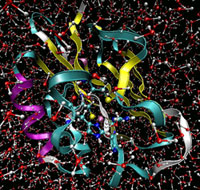
|
|
Recently, we focus on "multiplex band effect" in solid-state properties.
In addition, we search for the theoretical feasibility that various solid-state properties expressions
can be induced by the laser and the outside fields such as electric fields and magnetic fields.
Performing the first-principle computation of the superconductive state,
we develop our study further for the principle and discovery of the superconductive transition high-temperature.
Moreover, we analyze copper protein by Molecular Dynamics simulation and Molecular Orbital theory. |
|
|
|
|
Keywords :
Quantum Control by laser pulse
Molecular design for superconductivity etc.
Simulation of copper protein using Molecular Dynamics / Molecular Orbital theory |
Members (e-mail ****@wriron1.s.kanazawa-u.ac.jp)
- Graduate Students in Doctor Course
- Graduate Students in Master Course
- Shuniti Taniguchi(shun@) M2
- Riki Nakamura(riki@) M2
- Keisuke Matsumoto(keisuke@) M2
- Masashi Iwayama(iwayama@) M1
- Taihei Hashimoto(hasimoto@) M1
- Bachelor Students
- Yuriko Omae(omae@) B4
- Ayuha Sato(satouayuha@) B4
- Tomohiro Tsuchiya(tomo@) B4
- Ryo Nakada(nakada827@) B4
- Masanori Yamada(yamadamasanori@) B4
- Past Members
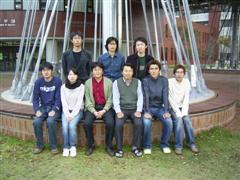
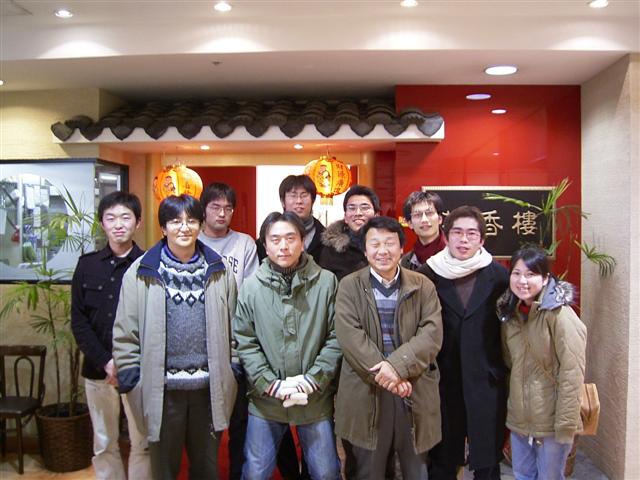
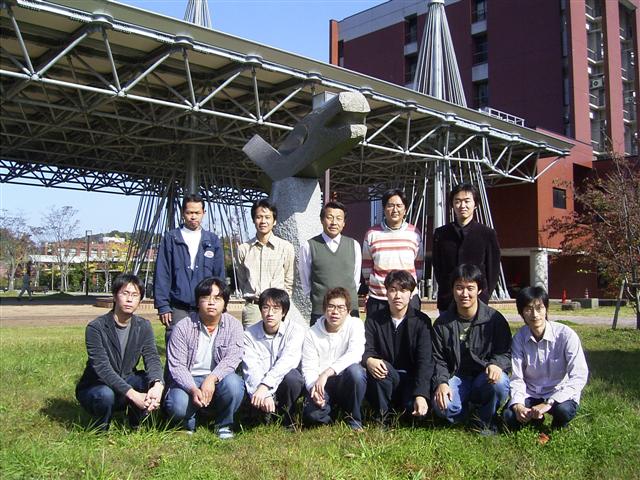
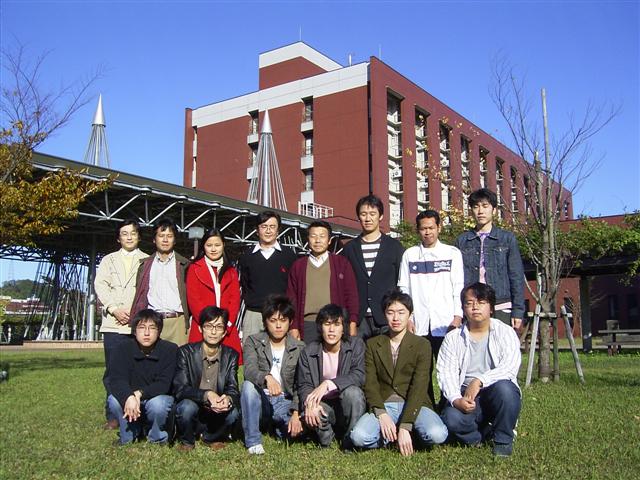
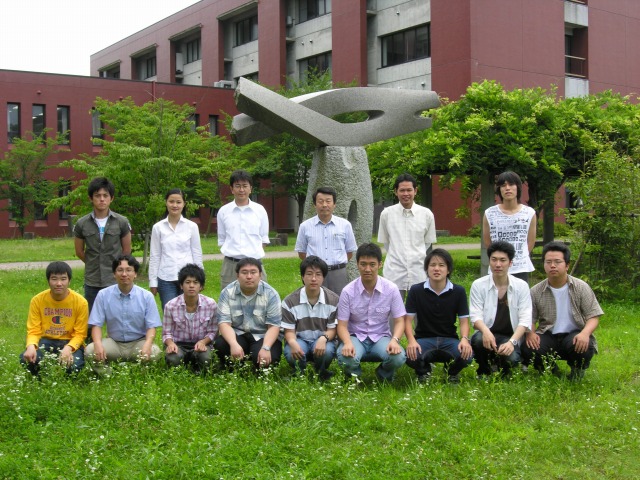
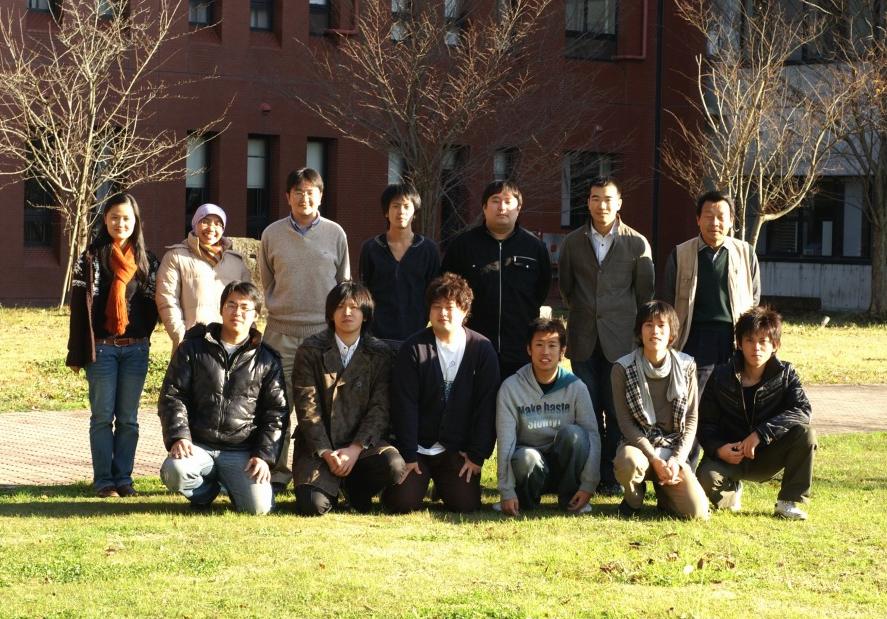
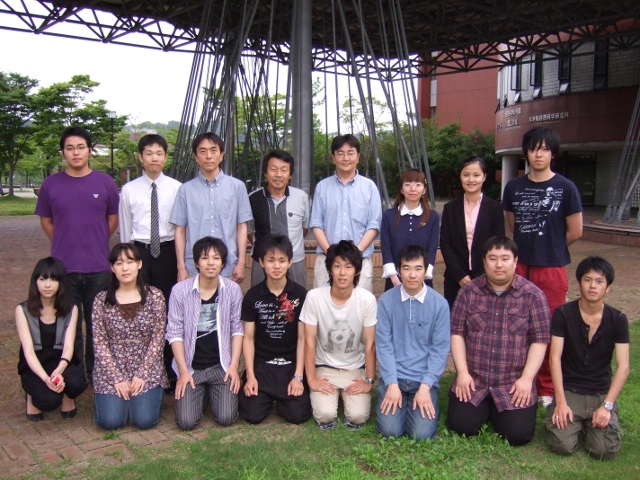
Seminar / Lecture
|
[Seminar for master students] |
J.J. Sakurai "Modern Quantum Mechanics" |
| [Laser] |
Walls, Milbaun "Quantum optics" Research Seminar
|
| [Protein] |
De Jean "Physics of macromolecule" Research Seminar |
| [Evening Seminar (Entire Seminar)] |
"Mathematics of rhythm phenomenon" |
In our laboratory, we have various seminars according to subjects of study
besides the quantum mechanics seminar for master and undergraduate students.
Overall, "Evening Seminar" is held on Wednesdays at 7 p.m.In
this seminar, doctoral and masterfs students take up interesting themes
to work on. In addition, we work in collaboration with the members of the
Theoretical Chemistry Laboratory to read "Theory and Application of
Quantum Molecular Dynamics" written by J.Z.H. Zhang
by turns. |
Publications
Paper / Book / Patent
Information
TOPIC
Conferences
September 20-23, 2006 Molecular Structure Comprehensive Symposium 2006
Shizuoka (Shizuoka Convention & Arts Center "GRANSHIP", Shizuoka)
November 12-16, 2006 Fifth East Asian Biophysics Symposium & Forty-Fourth
Annual Meeting of the Biophysical Society of Japan (Okinawa Convention
Center, Okinawa)
December 12, 2006 Japan Mathematica Conference 2006 (Tokyo Big Sight, Tokyo)
Contact
The Computational Chemistry Group website is test-operating. The content
and the design, etc. can be modified without notice.
Related Links
Links / Co-operators
Access
Map
Research Bldg. of Fac. Sci.,
#329(K. Nishikawa)
#327(H. Nagao)
#305,306,307(Students)
Location of Kanazawa University
Large
Address
Department of Computational Science,
Faculty of Science,
Kanazawa University,
Kakuma, Kanazawa, Ishikawa, JAPAN, 920-1192
K. Nishikawa, TEL: +81-76-264-5687
H. Nagao, TEL: +81-76-264-6125
FAX: +81-76-264-5742
Laboratory: Extension 2718
|







